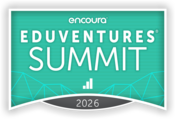SXSW turns 30 years young this year. What started out as a small, Austin-weird music festival has grown into a mainstream cultural force that celebrates film, interactive software, the environment, and—our personal favorite—edtech innovation at SXSWedu.
In honor of this milestone, we thought we’d pay homage to SXSW’s musical roots with a playlist to showcase some of the themes we heard around Austin last week and those we wish we had heard more of.
Don’t Stop Believing
Although it may have overstayed its welcome, the well-worn anthem of lifelong learning seemed to be everywhere. Jim Deters, CEO of coding bootcamp Galvanize, suggested that the best path forward for the underemployed and “unhappily employed” is still the time-intensive, skills-focused, and cohort-based programs immersed in IT and related data sciences. Other speakers referenced the enduring popularity of lifelong learning in recent surveys of college mission statements. When we compared the number of talks on this theme to last year’s program, we found that sessions on continuing education increased by 50%. Unfortunately, the phrase seemed as imprecise as it was ubiquitous; everyone’s using it, but they all refer to different things.School’s Out (…Forever?)
There were ample opportunities to catch up on the latest crop of outcomes-driven boot camp and alternative credential programs. Jake Schwartz, CEO of General Assembly (GA), attracted quite a crowd after his powerful analysis of why close to 99% of GA graduates find jobs within six months of completion. According to Schwartz, employers are increasingly relying on micro-credentials instead of conventional, time-based credentials. The conversation took an interesting turn when Schwartz was asked about the level of rigor in GA programs and responded, perhaps tongue in cheek, that it may be time to acknowledge the possibility of an MVE, or “minimum viable education.” While the concept of a minimum viable product might work in software development, how “minimum” and “viable” are defined are critical to its broader applicability in higher ed.You’ve Got a Friend (in Stackable Credentials)
Under Secretary for Education Ted Mitchell’s opening remark— “I’m from the federal government, and I want to help” —was greeted with polite laughter and more than a few raised eyebrows. Mitchell deftly outlined a “clear imperative” toward greater innovation and, unsurprisingly, focused on the rising tide of competency-based and outcomes-driven models. While the current presidential campaign will define the next chapter of the Department of Education’s (ED) focus, Mitchell identified several factors driving current innovations, many of which echo our analysis of the adult or “post-traditional” learner:- Increasingly immersive environments can measure student learning and reveal where students are successful and where they need help.
- The new normal is the working, single-parent, who demands more flexible learning opportunities.
- There will be more openness in how learning can be certified and credentialed. Look out for the announcement of the new EQUIP grants, which are designed to expand access to Title IV funding for providers of alternative credentials.

